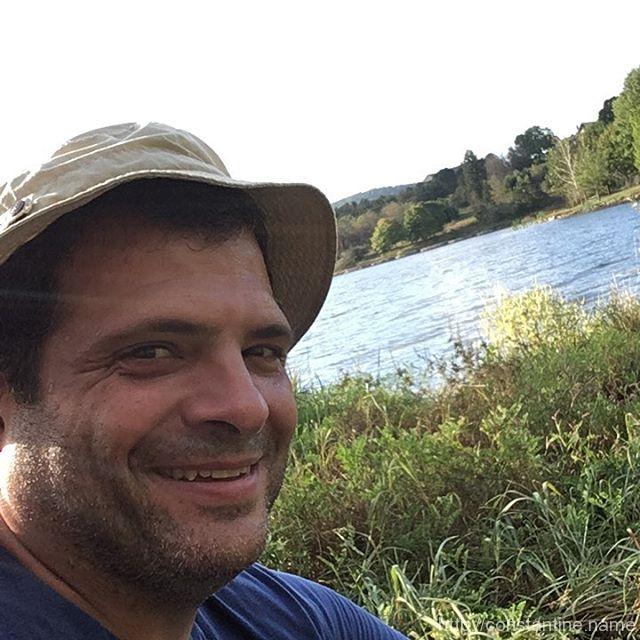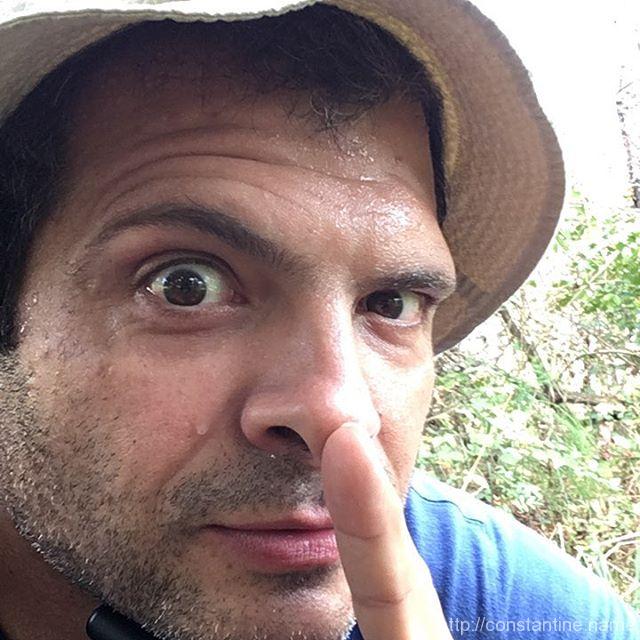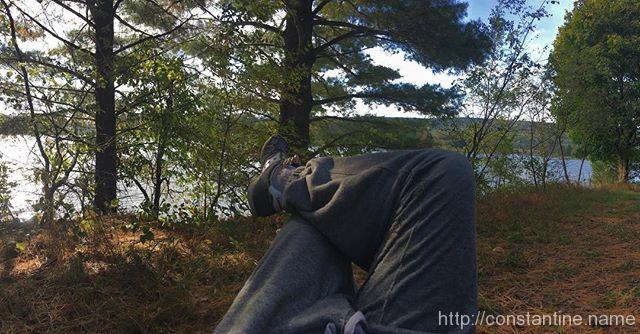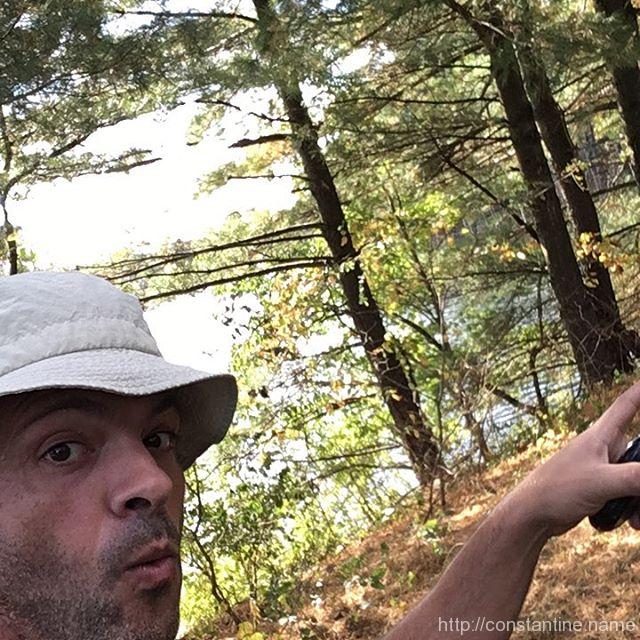Live every day as if it were your last, for one day you’re sure to be right.
~ Breaker’ Morant, in 1980 film
slip:4a1561
Live every day as if it were your last, for one day you’re sure to be right.
~ Breaker’ Morant, in 1980 film
slip:4a1561
No enjoyment, however inconsiderable, is confined to the present moment. A man is happier for life from having made once an agreeable tour, or lived for any length of time among pleasant people, or enjoyed any considerable interval of innocent pleasure.
~ Sydney Smith
slip:4a1293.
In the military they speak of sleep discipline–meaning it’s something you have to be good at, you have to be conscious of, something you can’t let slip. We only have so much energy for our work, for our relationships, for ourselves. A smart person knows this and guards it carefully. A smart person knows that getting their 7-8 hours of sleep every night does not negatively affect their output, it contributes crucially to their best work.
~ Ryan Holiday from, Here’s Your Secret To Success: Go The F*ck To Sleep – RyanHoliday.net
slip:4urygo1.
Sleep. sleep sleep sleep sleep sleep sleep sleep sleep sleep sleep sleep sleep sleep sleep sleep sleep sleep sleep sleep sleep sleep sleep sleep sleep sleep sleep. Sleep? Sleep!
Know that old trope about if you could go back and tell yourself something, or send yourself a letter? …and most people—including me!—say something like: No I wouldn’t because I’d not be who I am now without those mistakes! Yeah no ima take that back. Note to past self: Yo! Go the f*<k to sleep.
And maybe… just sayin’ spitballin’ here… try gettin’ up early if you really want to jump back on whatever it is you think it’s worth staying up for tonight… ¯\_(ツ)_/¯ what do I know.
ɕ
How can podcasting, particularly reflective solo episodes, enable personal growth, storytelling, and audience connection?
Reflecting on one year of podcasting reveals unexpected lessons about authenticity and audience connection.
Some ideas that might be cliché—which is another fear of mine, but nevertheless, it was what I learned—that we are all more similar than different. And it’s worth saying that, because a lot of these parents struggle with being sort of put in a category other than what’s considered normal. And what I realized is, first of all, normal is overrated and that there is no such thing as normal.
~ Carole Blueweiss (13:10)
This conversation explores the challenges and growth associated with podcasting, particularly solo episodes and reflective storytelling. Topics include finding an authentic voice, balancing preparation with spontaneity, and the iterative process of creating meaningful episodes. Carole reflects on how removing notes and speaking freely deepened their authenticity, transforming their approach to podcasting.
Additionally, the conversation dips into universal themes uncovered through interviews with parents of children with special needs. These parents’ stories highlight societal constructs like normalcy and disability, emphasizing shared human experiences. The discussion expands to broader societal issues, such as inclusion and accessibility, while expressing hope for creating empathy and understanding through storytelling.
Takeaways
Finding authenticity in podcasting — Removing notes and embracing spontaneity can enhance genuine connection.
The universality of human experiences — Stories from parents of children with special needs reveal shared themes of resilience and humanity.
Challenging societal norms — Concepts like normalcy and disability are critically examined, emphasizing diversity and inclusion.
The transformative power of podcasting — Hosting a podcast changes the creator through unexpected personal growth.
Expanding narratives — Reflective episodes allow creators to explore their own insights, connecting their voice to their audience in new ways.
Resources
Seth Godin’s Podcast Workshop — A course taken to refine podcasting skills and start storytelling with families.
Wisdom Shared Podcast — A podcast featuring stories of parents of children with special needs.
(Written with help from Chat-GPT.)
ɕ
The ideal agent’s frame of reference is thus her whole life, represented as accurately as a human being can remember its history and imagine its future, and lived as intelligently as a human being can exploit its possibilities.
~ Lawrence Becker
slip:4a576.
Remember that it is not oly a desire for riches and power that makes you abject and subservient to others, but also a desire for quiet and leisure, and travel and learning. For the value you place on an external object, whatever it may be, makes you subservient to another.
~ Epictetus
slip:4a379.
Anicet Desrochers slips the small, crowbar-like tool underneath the lid of the beehive and cracks the propolis seal, a glue that bees make from resin. He puffs a smoker over the box as he pulls and examines the honeycomb frames with bare hands. The smoke, he says, disrupts the bees’ alarm pheromones, making them groggy, while also causing them to gorge on honey and nectar, a possible response to believing there is a fire. When they’re full, they’re less likely to sting.
~ Shaun Pett from, How a Canadian Beekeeper Breeds New Queens – Gastro Obscura
slip:4uaaai9.
Let me think about that… NO. But it’s a great article that explains the bee keepers’ extreme efforts to breed the Queens. Fascinating stuff.
…but I’m not putting my bare hands in no bee hives.
ɕ
If thought is something we share, then so is reason—what makes us reasoning beings. If so, then the reason that tells us what to do and what not to do is also shared. And if so, we share a common law. And thus, are fellow citizens. And fellow citizens of something. And in that case, our state must be the world. What other entity could all of humanity belong to? And from it—from this state that we share—come thought and reason and law.
~ Marcus Aurelius
slip:4a345.
I must die. If instantly, I will die instantly; If in a short time, I will dine first, since the hour for dining is here, and when the time comes, then I will die. How? As becomes a person who is giving back what is not his own.
~ Epictetus
slip:4a165.

spent hours today running around Leaser Lake. Really enjoyed a drive through my old high school stomping ground on my way to help train search-and-recovery dogs. Perfect weather to play in nature while not following the paths
ɕ

Ima b covered in poison-ivy. #dontcare “Professional Scent Item” is going on my resume.
ɕ

Roxy has to find me from upwind…. she was so close, she heard my radio chirp…
ɕ

may as well enjoy the wait
ɕ

currently running through the woods trying to hide from an SAR dog. Sweaty Italian with dog treats…. I’m doomed.
ɕ
Here are a couple more things which I’ve read about, but haven’t tried as part of my sleep hacking.
Some people have suggested keeping a sleep journal. In it you record everything related to sleep: notes about your last meal (what and when), what time you go to bed, when you wake up, perceived quality of sleep, dreams… everything. You would then be able to review this sleep journal periodically and use it to inspire changes in your sleep rituals.
The best way to improve you sleep is to conduct experiments. Change some detail and then sleep with that for a month. Then review your sleep journal notes to compare with the previous month.
In my general life hacking, I was often changing many things at the same time. Some of the details of sleeping which you would hack on with a sleep journal, I was already hacking and tracking.
My Grand-parents’ generation seems to have slept more frequently in separate beds than is popular these days. (A quick search of the Internet leads me to believe as many as 1/3 of couples currently sleep in separate beds on a regular basis.)
I haven’t graduated to this level, yet. But I can tell you that having another person immediately next to you whose movements, or snoring, may wake you, is just another thing to mess up your sleep. When I first started hacking my sleep, I realized that we were waking each other up frequently in the night. It turns out that if I’m only sleeping lightly, the other person’s movements will wake me. But it seems that as my sleep quality has improved, movements and sounds are now much less likely to make me.
That said, if you wanted to try separate sleeping, you could try sleeping on the floor (with futon cushions, or air mattresses.) You could then move your bedding closer or farther apart as the mood strikes, and still be on a solid surface which would not convey any sense of movement from the other person. You’re still close enough, of course, that sounds could be an issue.
Aside: This is one reason why I prefer to sleep on my air mattress on the floor when I travel. Sharing a pull-out sofa or large bed with someone I don’t know, is the worst-case scenario for being disturbed all night.
ɕ
Keep on keepin’ on!: I’ve filled in the rest of the bars and this thing now needs a name. Until you’ve tried moving in a complex space, you won’t know how supremely capable the human body is; shoulders, grip, torso, knees, feet, vision, proprioception, spacial mapping… that meat-frame your mind lives in is meant to M. O. V. E.
ɕ

ɕ
One of the great myths in America is that sports build character. They can and they should. Indeed, sports may be the perfect venue in which to build character. But sports don’t build character unless a coach possesses character and intentionally teaches it.
~ Joe Ehrmann from, Joe Ehrmann – Wikipedia
ɕ
Two leading fuel cell manufacturers, Massachusetts-based Nuvera and Albany, N.Y.-based Plug Power Inc., will each receive $650,000 from DOE’s Office of Energy Efficiency and Renewable Energy. The companies will provide matching funds and labor of their own. A PNNL team led by Brooks will oversee and evaluate the two-year program.
Industry officials estimate that approximately 300,000 refrigerated trucks with auxiliary power units are on the road in the United States. By replacing the small diesel engines with the more efficient fuel cell, users will see fuel savings of approximately 10 gallons a day per unit, in addition to reduced emission of pollutants and significantly quieter operation.
~ Phys.org from, Refrigerated trucks to keep their cool thanks to fuel cell technology
slip:4upyne11.
ɕ